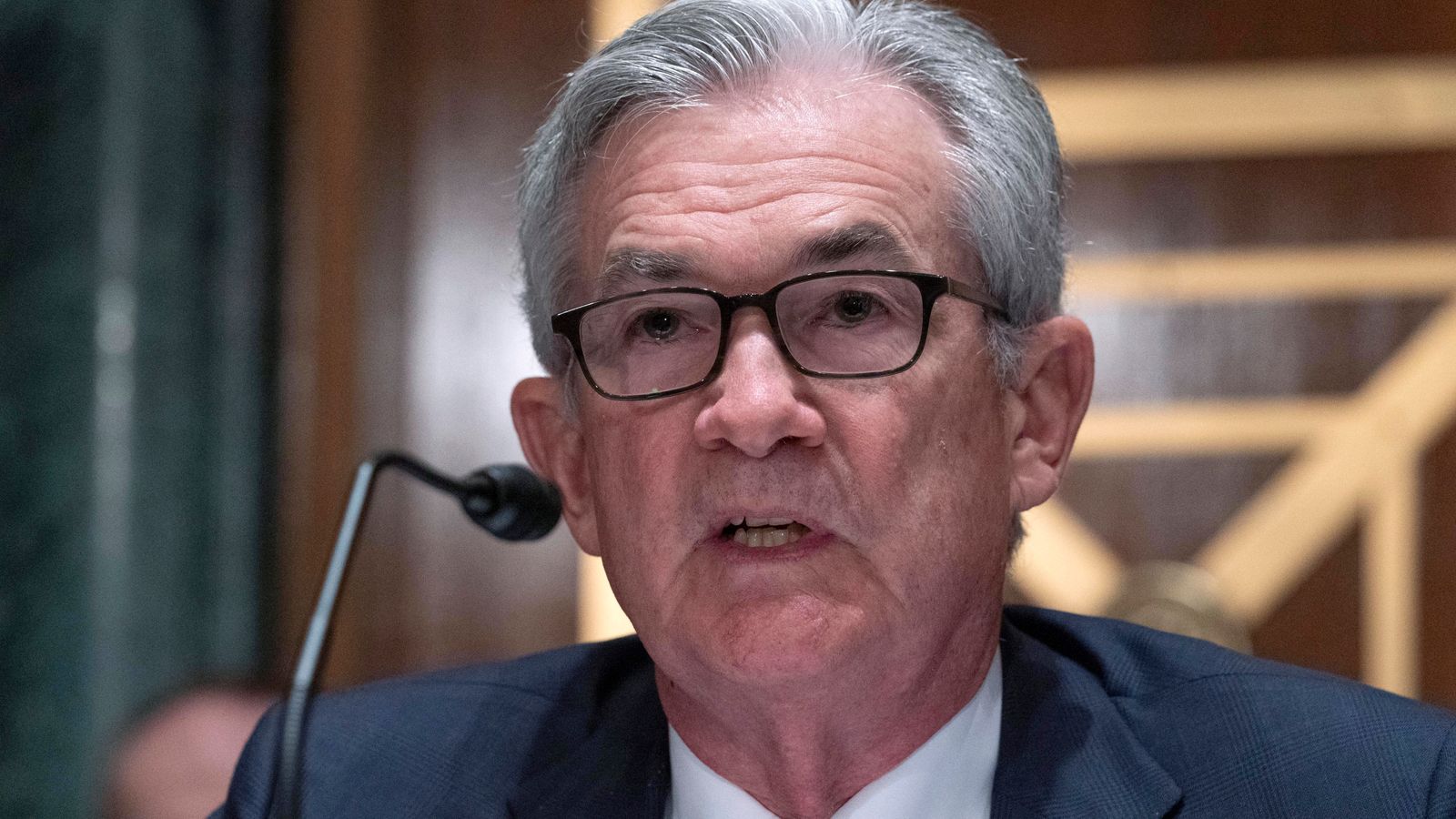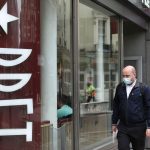It is typical at this point in the season for dictionary publishers and academics to publish their word of the year.
For Cambridge Dictionary, the word of the year is ‘perseverance’, while the US publisher Merriam-Webster went for ‘vaccine’.
Oxford Languages, similarly, went for ‘vax’ while Macquarie Dictionary, the main authority on Australian English, chose ‘strollout’, a popular piece of Aussie slang highlighting public frustration at the slow speed of vaccine roll-out.
For economists and financial market participants, though, the word of 2021 without any shadow of doubt is ‘transitory’.
That is the word adopted by central bankers worldwide to describe the notion that the pick-up in inflation this year is merely a natural rise reflecting bottlenecks that built up in global supply chains during the pandemic.
It was used regularly by the likes of the US Federal Reserve, the Bank of England and the European Central Bank to explain why they were not tightening monetary policy or rushing to unwind emergency stimulus measures put in place in 2020 in spite of the fact that, in each location, inflation was running well ahead of the level where they might usually be expected to do so.
That insistence on the spike in inflation being merely temporary has un-nerved investors on a regular basis this year.
Bookings cancelled and plans changed as ‘chilling talk of Plan B’ hits hospitality sector
COVID-19: Travel stocks lead FTSE 100 higher in latest Omicron-driven market swing
COVID-19: Help vaccinate poor countries or face more new variant shocks, rich economies told
Tuesday evening, though, brought a sign that at least one key policymaker is beginning to look on inflation as more ingrained.
Jay Powell, chairman of the Fed, told US Congress: “It’s probably a good time to retire that word.”
The world’s most important central banker insisted he still expected inflation to fall next year as supply and demand imbalances created by the pandemic and its aftermath continue to unwind.
But he pointed out that higher energy costs, rising wages and increased rents could all keep inflation in early 2022 higher than might have been expected.
He went on: “It now appears that factors pushing inflation upward will linger into next year.”
His comments were accompanied by a signal the Fed may now start unwinding its asset purchases – Quantitative Easing in the jargon – more rapidly than previously indicated.
The Fed said at the beginning of last month it would reduce its $120bn-worth of monthly asset purchases by $15bn in each of November and December.
That would mean QE would end in June next year – the end of QE being a prerequisite for the Fed beginning to raise US interest rates from their current near-zero level.
But Mr Powell said last night: “The economy is very strong and inflationary pressures are high, and it is therefore appropriate in my view to consider wrapping up the taper of our asset purchases…perhaps a few months sooner.”
It certainly represented a marked change of tone from Mr Powell who, only last week, was reappointed by US president Joe Biden for a second four-year term over the more dovish Lael Brainard.
And his comments rattled stock markets – sending the S&P 500, the Dow Jones Industrial Average and the Nasdaq down by between 1.6% and 1.9% apiece. In the S&P500, America’s most important stock index, only eight stocks did not fall.
In the Asia Pacific region and in Europe, markets have rallied on Wednesday, partly because, on reflection, investors have decided that a normalisation of monetary policy in the US can be taken as a sign that the US economy – and by extension the global economy – is also returning to normal.
Yet Mr Powell’s words have implications for his peers elsewhere around the world.
In the UK, for example, Andrew Bailey, the Bank of England governor, has been dropping hints for a while that a rise in interest rates from the current record low of 0.1% was in the offing.
But it was by no means a foregone conclusion and, in the event, the Bank’s Monetary Policy Committee chose to stay their hand for at least one more month while they waited to see what impact the end of the furlough scheme would have on the labour market.
It has since been clear that the ending of the furlough scheme has not resulted in a rise in unemployment – making an interest rate rise highly likely in coming months.
However, as the MPC has not raised interest rates in December once in the 24 years since it was created, most economists expect it to wait now until January or even February.
The bigger quandary, arguably, faces Christine Lagarde and her colleagues at the European Central Bank.
Mme Lagarde has made quite clear that she is in no hurry to raise interest rates.
She told Sueddeutsche Zeitung, one of Germany’s best-selling newspapers, on Monday: “If we tightened monetary policy now, that would not add a single container ship or truck driver.”
Yet inflation across the eurozone’s 19 member states currently sits at 4.9%, the highest on record and more than twice the ECB’s target rate of 2%.
In Germany, the bloc’s most important member, it stands even higher than that at 6% – a level not seen since West and East Germany were unified in 1990 and only marginally lower than the current US rate of 6.2%.
Some now expect the ECB to have to throw in the towel.
Charles Hepworth, investment director at the fund manager GAM Investments, said: “It may be wishful thinking on the part of ECB President Lagarde when she declares that price pressures won’t run out of control – they already are and it’s difficult to follow the argument that it will abate soon.”
He said that the ECB would be deciding in just over two weeks whether to end its bond buying from next March, as previously planned, with the decision now seemingly hanging on the apparent danger of the new Omicron variant of coronavirus.
Jay Mawji, managing director of the global brokerage IX Prime, added: “Few would quibble with Christine Lagarde’s assessment that eurozone inflation will fade of its own accord next year.
“But the timing is hotly debated, and the extreme inflationary pressure now being endured around the bloc is making finance ministers increasingly anxious.
“In the face of such scorching inflationary heat, the ratesetters of the European Central Bank’s governing council will have to make a strong case not to rein in its money printing programme when they meet in December.”
Central banks in countries such Poland, Norway, Romania, Russia, Sri Lanka and New Zealand have already raised interest rates in recent months.
Yet none of the world’s major central banks – usually defined as the Fed, the ECB, the Bank of England, the Bank of Japan and the Swiss National Bank – have and, when the Bank last month surprised the markets by not moving, there was speculation it was because it did not want to be the first major central bank to do so.
Mr Powell has just given the MPC cover to act.






















